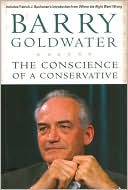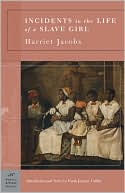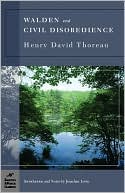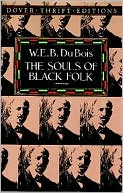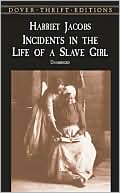The Whites of Their Eyes: The Tea Party's Revolution and the Battle over American History
Americans have always put the past to political ends. The Union laid claim to the Revolution—so did the Confederacy. Civil rights leaders said they were the true sons of liberty—so did Southern segregationists. This book tells the story of the centuries-long struggle over the meaning of the nation's founding, including the battle waged by the Tea Party, Glenn Beck, Sarah Palin, and evangelical Christians to "take back America."\ Jill Lepore, Harvard historian and New Yorker staff writer,...
Search in google:
"Jill Lepore is a national treasure. There is no other writer so at home both as a trenchant scholar of American history and as an on-the-scene observer of our present-day follies. She etches the connection between past and present with a wisdom, grace, and sparkle that makes this book even harder to put down--if that's possible--than her previous work."--Adam Hochschild, author of Bury the Chains: Prophets and Rebels in the Fight to Free an Empire's Slaves"No one writes about our Revolutionary history and its effects upon the shape of our culture and society today with more wit, verve, and sparkling intelligence than Jill Lepore. The Whites of Their Eyes offers the most compelling look we have so far at who we were and who we have become as a nation, and provides a cool and much needed context for the heated rhetoric of this 'new' reactionary moment."--Henry Louis Gates, Jr., Alphonse Fletcher University Professor, Harvard University"The Whites of Their Eyes shows Jill Lepore at her remarkable best--accessible, authoritative, and wise."--Jeffrey Toobin, author of The Nine: Inside the Secret World of the Supreme Court"Modern Tea Partiers have thrown facts overboard and recast the Revolution in their own image: white, Christian, and ultraconservative. Lepore demolishes the Tea Party's founding fable with deep scholarship and devastating wit."--Tony Horwitz, author of Confederates in the Attic"The Whites of Their Eyes offers a lesson in what history actually is and how it seems constantly to be used and abused. Lepore is a superb writer."--Eric Foner, author of Reconstruction: America's Unfinished Revolution, 1863-1877"This book gives an informed account of the ways contemporary references to the Revolution ignore, distort, run roughshod over, yet somehow attempt seriously to evoke the events of the past. It nicely represents Lepore's distinctive genius as a historian."--Jack N. Rakove, author of Original Meanings: Politics and Ideas in the Making of the Constitution The New York Times - Alan Brinkley …a brief but valuable book, The Whites of Their Eyes: The Tea Party's Revolution and the Battle Over American History…combines [Lepore's] own interviews with Tea Partiers (mostly from her home state, Massachusetts) and her deep knowledge of the founders and of their view of the Constitution. The architects of the Constitution, she makes clear, did not agree about what it meant. Nor did they believe that the Constitution would or should be the final word on the character of the nation and the government. It was the product of much compromise, and few were satisfied with all its parts.
Foreword by Ruth O'Brien ix Prologue Party Like It's 1773 1 Chapter 1: Ye Olde Media 20 Chapter 2: The Book of Ages 43 Chapter 3: How to Commit Revolution 70 Chapter 4: The Past upon Its Throne 98 Chapter 5: Your Superexcellent Age 126 Epilogue Revering America 152 Acknowledgments 167 Notes 169 Index 199
\ New York Times Book ReviewJill Lepore, a historian of the American Revolution and a staff writer at The New Yorker, has written a brief but valuable book, The Whites of Their Eyes: The Tea Party's Revolution and the Battle Over American History, which combines her own interviews with Tea Partiers (mostly from her home state, Massachusetts) and her deep knowledge of the founders and of their view of the Constitution.\ — Alan Brinkley\ \ \ \ \ New York Review of BooksThroughout her book Lepore's implicit question remains always: Don't these Tea Party people realize how silly they are? They don't understand history; they need to learn that time moves forward. 'We cannot go back to the eighteenth century,' she says, 'and the Founding Fathers are not, in fact, here with us today.'\ — Gordon S. Wood\ \ \ Daily BeastTackling the present, the near present, and the far-away past in one small volume, Lepore has not only penned an indictment of the Tea Party's crimes against history, she's also working in the tradition of Hofstadter, helping edge the academy closer to the public arena. And remaining a card-carrying historian, churning out intricate studies like New York Burning, Lepore has continued to step outside the safe boundaries of the ivory tower. At the risk of being accused of dilettantism, she's even tried her hand at historical fiction, co-authoring Blindspot in 2008. Now she's given journalism a go, making the case that Lepore is a better reporter than any historian, and a better historian than any reporter.\ — Samuel P. Jacobs\ \ \ \ \ Economist.comThe Whites of Their Eyes isn't a screed of any kind, and the text is refreshingly free of ire. It is, instead, a warning shot across the bow. To tea-party activists of today, Ms. Lepore seems to be saying, 'Tighten up your game.' In its current iteration, the tea-party is a feat of storytelling. But in order to gain a foothold in American politics, it must aspire to more than that.\ — Molly Young\ \ \ \ \ San Francisco ChronicleLepore's graceful grasp of both history and reality is important. 'The past haunts us all,' Lepore writes. 'But time moves forward, not backward. Chronology is like gravity. Nothing falls up. We cannot go back to the eighteenth century, and the Founding Fathers are not, in fact, here with us today.'\ — Martin F. Nolan\ \ \ \ \ Books & CultureIn The Whites of Their Eyes, Lepore reviews the history of the American Revolution—in order to explore, and explode, the way the 21st-century Right uses that history. She criticizes history-according-to-the-Tea-Party on two levels. First, and unsurprisingly, she finds that the Tea Party's description of the past is simply incorrect at many turns. More interesting is Lepore's second criticism. In their asking the (unanswerable) question, 'What would the Founders do?', the Tea Party invites people to have a very strange relationship with the past: 'People who ask what the founders would do quite commonly declare that they know, they know, they just know what the founders would do, and, mostly, it comes to this: if only they could see us now, they would be rolling over in their graves. . . . We have failed to obey their sacred texts, holy writ,' Lepore writes provocatively. 'That's not history. It's not civil religion, the faith in democracy that binds Americans together. It's not originalism or even constitutionalism. That's fundamentalism.'\ — Lauren Winner\ \ \ \ \ ForeWord ReviewsThe Whites of Their Eyes is a fascinating attempt to raise the level of US public policy debate. It is also a critique of the uses of history in politics and a brief, informative account of the ordinary people who lived at the time of the American Revolution. [It] is a valuable contribution to current discussions of public policy and should be read by anyone interested in serious political debate.\ — John Michael Senger\ \ \ \ \ St. Louis Post-DispatchIn The Whites of Their Eyes, Lepore's liberal perspective is obvious although she largely sticks to history. Readers will find no exposé of an 'astroturf' movement funded by billionaire libertarians. What they will find is a trenchant, lively and devastating meditation on the uses and abuses of American history, most recently by the tea partiers. . . . Lepore counters what she assails as 'historical fundamentalism' (which, in the words of a chapter title, places 'the past upon its throne') with rich, if roaming, portraits of an American Revolution that she clearly loves. Thus, the book will have enduring value beyond the upcoming election.\ — Steven P. Miller\ \ \ \ \ Philadelphia InquirerLepore, a Harvard University historian and writer for the New Yorker, has a good ol' time shooting fish in a barrel. But by far the most interesting and biting parts of her story come not from cleaning up messy and false tea party tales of the olden days, nor from her parallel account of the leftist history promoted by activists during the nation's bicentennial in the 1970s. What Lepore does best is rescue forgotten people and moments from the Revolutionary era and remind us beautifully of the many-layered power of place. In some ways, this little book is not so much about the tea party and American history as about richly knowing a city, in this case Boston. To know a city through time, to look at a spot and know what once stood there is among the most intense—and often ironic—urban pleasures. Lepore conveys this beautifully.\ — Stephan Salisbury\ \ \ \ \ Willamette WeekLepore's acerbic wit (and its accompanying soul, brevity) makes The Whites of Their Eyes (Princeton, 206 pages, $19.95) a welcome change of pace from the 900-page biographies of George Washington now straining bookstore shelves across the country.\ — Matthew Buckingham\ \ \ \ \ ChoiceWriting with verve, wit, and careful attention to detail, Lepore systematically contrasts their use of Revolutionary imagery and ideas with documented facts. She provides a detailed yet disturbing portrait of a populist faction advocating devolution towards a society that would have excluded all of the Tea Party's own members. Yet, Lepore's goal is not to make this association look foolish, but to cast a critical light on all organizations, public as well as private, who misuse the past for their own selfish goals. For that reason alone, this is an important work for all Americans.\ \ \ \ \ Huffington PostLepore mounts an obvious argument, but does so in a way that is eminently readable, shows flashes of wit, and punctures with fact the magical thinking that she justly terms 'historical fundamentalism.' The book's accessible, sensible history of a period prone to wild misrepresentation is a valuable contribution, and Lepore has ably reinforced that contribution in her journalism for the New Yorker and the New York Times—such as her recent, pleasing attack on Paul Ryan's budgetary demagoguery.\ — Feisal Mohamed\ \ \ \ \ New York Times Book ReviewJill Lepore, a historian of the American Revolution and a staff writer at The New Yorker, has written a brief but valuable book, The Whites of Their Eyes: The Tea Party's Revolution and the Battle Over American History, which combines her own interviews with Tea Partiers (mostly from her home state, Massachusetts) and her deep knowledge of the founders and of their view of the Constitution.\ \ \ \ \ New York Review of BooksThroughout her book Lepore's implicit question remains always: Don't these Tea Party people realize how silly they are? They don't understand history; they need to learn that time moves forward. 'We cannot go back to the eighteenth century,' she says, 'and the Founding Fathers are not, in fact, here with us today.'\ \ \ \ \ Daily BeastTackling the present, the near present, and the far-away past in one small volume, Lepore has not only penned an indictment of the Tea Party's crimes against history, she's also working in the tradition of Hofstadter, helping edge the academy closer to the public arena. And remaining a card-carrying historian, churning out intricate studies like New York Burning, Lepore has continued to step outside the safe boundaries of the ivory tower. At the risk of being accused of dilettantism, she's even tried her hand at historical fiction, co-authoring Blindspot in 2008. Now she's given journalism a go, making the case that Lepore is a better reporter than any historian, and a better historian than any reporter.\ \ \ \ \ Economist.comThe Whites of Their Eyes isn't a screed of any kind, and the text is refreshingly free of ire. It is, instead, a warning shot across the bow. To tea-party activists of today, Ms. Lepore seems to be saying, 'Tighten up your game.' In its current iteration, the tea-party is a feat of storytelling. But in order to gain a foothold in American politics, it must aspire to more than that.\ \ \ \ \ San Francisco ChronicleLepore's graceful grasp of both history and reality is important. 'The past haunts us all,' Lepore writes. 'But time moves forward, not backward. Chronology is like gravity. Nothing falls up. We cannot go back to the eighteenth century, and the Founding Fathers are not, in fact, here with us today.'\ \ \ \ \ Books & CultureIn The Whites of Their Eyes, Lepore reviews the history of the American Revolution—in order to explore, and explode, the way the 21st-century Right uses that history. She criticizes history-according-to-the-Tea-Party on two levels. First, and unsurprisingly, she finds that the Tea Party's description of the past is simply incorrect at many turns. More interesting is Lepore's second criticism. In their asking the (unanswerable) question, 'What would the Founders do?', the Tea Party invites people to have a very strange relationship with the past: 'People who ask what the founders would do quite commonly declare that they know, they know, they just know what the founders would do, and, mostly, it comes to this: if only they could see us now, they would be rolling over in their graves. . . . We have failed to obey their sacred texts, holy writ,' Lepore writes provocatively. 'That's not history. It's not civil religion, the faith in democracy that binds Americans together. It's not originalism or even constitutionalism. That's fundamentalism.'\ \ \ \ \ ForeWord ReviewsThe Whites of Their Eyes is a fascinating attempt to raise the level of US public policy debate. It is also a critique of the uses of history in politics and a brief, informative account of the ordinary people who lived at the time of the American Revolution. [It] is a valuable contribution to current discussions of public policy and should be read by anyone interested in serious political debate.\ \ \ \ \ St. Louis Post-DispatchIn The Whites of Their Eyes, Lepore's liberal perspective is obvious although she largely sticks to history. Readers will find no exposé of an 'astroturf' movement funded by billionaire libertarians. What they will find is a trenchant, lively and devastating meditation on the uses and abuses of American history, most recently by the tea partiers. . . . Lepore counters what she assails as 'historical fundamentalism' (which, in the words of a chapter title, places 'the past upon its throne') with rich, if roaming, portraits of an American Revolution that she clearly loves. Thus, the book will have enduring value beyond the upcoming election.\ \ \ \ \ Philadelphia InquirerLepore, a Harvard University historian and writer for the New Yorker, has a good ol' time shooting fish in a barrel. But by far the most interesting and biting parts of her story come not from cleaning up messy and false tea party tales of the olden days, nor from her parallel account of the leftist history promoted by activists during the nation's bicentennial in the 1970s. What Lepore does best is rescue forgotten people and moments from the Revolutionary era and remind us beautifully of the many-layered power of place. In some ways, this little book is not so much about the tea party and American history as about richly knowing a city, in this case Boston. To know a city through time, to look at a spot and know what once stood there is among the most intense—and often ironic—urban pleasures. Lepore conveys this beautifully.\ \ \ \ \ Willamette WeekLepore's acerbic wit (and its accompanying soul, brevity) makes The Whites of Their Eyes (Princeton, 206 pages, $19.95) a welcome change of pace from the 900-page biographies of George Washington now straining bookstore shelves across the country.\ \ \ \ \ Huffington PostLepore mounts an obvious argument, but does so in a way that is eminently readable, shows flashes of wit, and punctures with fact the magical thinking that she justly terms 'historical fundamentalism.' The book's accessible, sensible history of a period prone to wild misrepresentation is a valuable contribution, and Lepore has ably reinforced that contribution in her journalism for the New Yorker and the New York Times—such as her recent, pleasing attack on Paul Ryan's budgetary demagoguery.\ \ \ \ \ Choice\ Writing with verve, wit, and careful attention to detail, Lepore systematically contrasts their use of Revolutionary imagery and ideas with documented facts. She provides a detailed yet disturbing portrait of a populist faction advocating devolution towards a society that would have excluded all of the Tea Party's own members. Yet, Lepore's goal is not to make this association look foolish, but to cast a critical light on all organizations, public as well as private, who misuse the past for their own selfish goals. For that reason alone, this is an important work for all Americans.\ \ \ \ \ Gordon S. Wood\ Throughout her book Lepore's implicit question remains always: Don't these Tea Party people realize how silly they are? They don't understand history; they need to learn that time moves forward. 'We cannot go back to the eighteenth century,' she says, 'and the Founding Fathers are not, in fact, here with us today.'\ \ \ \ \ Alan Brinkley\ Jill Lepore, a historian of the American Revolution and a staff writer at The New Yorker, has written a brief but valuable book, The Whites of Their Eyes: The Tea Party's Revolution and the Battle Over American History, which combines her own interviews with Tea Partiers (mostly from her home state, Massachusetts) and her deep knowledge of the founders and of their view of the Constitution.\ \ \ \ \ Lauren Winner\ In The Whites of Their Eyes, Lepore reviews the history of the American Revolution--in order to explore, and explode, the way the 21st-century Right uses that history. She criticizes history-according-to-the-Tea-Party on two levels. First, and unsurprisingly, she finds that the Tea Party's description of the past is simply incorrect at many turns. More interesting is Lepore's second criticism. In their asking the (unanswerable) question, 'What would the Founders do?', the Tea Party invites people to have a very strange relationship with the past: 'People who ask what the founders would do quite commonly declare that they know, they know, they just know what the founders would do, and, mostly, it comes to this: if only they could see us now, they would be rolling over in their graves. . . . We have failed to obey their sacred texts, holy writ,' Lepore writes provocatively. 'That's not history. It's not civil religion, the faith in democracy that binds Americans together. It's not originalism or even constitutionalism. That's fundamentalism.'\ \ \ \ \ Stephan Salisbury\ Lepore, a Harvard University historian and writer for the New Yorker, has a good ol' time shooting fish in a barrel. But by far the most interesting and biting parts of her story come not from cleaning up messy and false tea party tales of the olden days, nor from her parallel account of the leftist history promoted by activists during the nation's bicentennial in the 1970s. What Lepore does best is rescue forgotten people and moments from the Revolutionary era and remind us beautifully of the many-layered power of place. In some ways, this little book is not so much about the tea party and American history as about richly knowing a city, in this case Boston. To know a city through time, to look at a spot and know what once stood there is among the most intense--and often ironic--urban pleasures. Lepore conveys this beautifully.\ \ \ \ \ Samuel P. Jacobs\ Tackling the present, the near present, and the far-away past in one small volume, Lepore has not only penned an indictment of the Tea Party's crimes against history, she's also working in the tradition of Hofstadter, helping edge the academy closer to the public arena. And remaining a card-carrying historian, churning out intricate studies like New York Burning, Lepore has continued to step outside the safe boundaries of the ivory tower. At the risk of being accused of dilettantism, she's even tried her hand at historical fiction, co-authoring Blindspot in 2008. Now she's given journalism a go, making the case that Lepore is a better reporter than any historian, and a better historian than any reporter.\ \ \ \ \ Molly Young\ The Whites of Their Eyes isn't a screed of any kind, and the text is refreshingly free of ire. It is, instead, a warning shot across the bow. To tea-party activists of today, Ms. Lepore seems to be saying, 'Tighten up your game.' In its current iteration, the tea-party is a feat of storytelling. But in order to gain a foothold in American politics, it must aspire to more than that.\ \ \ \ \ Martin F. Nolan\ Lepore's graceful grasp of both history and reality is important. 'The past haunts us all,' Lepore writes. 'But time moves forward, not backward. Chronology is like gravity. Nothing falls up. We cannot go back to the eighteenth century, and the Founding Fathers are not, in fact, here with us today.'\ \ \ \ \ John Michael Senger\ The Whites of Their Eyes is a fascinating attempt to raise the level of US public policy debate. It is also a critique of the uses of history in politics and a brief, informative account of the ordinary people who lived at the time of the American Revolution. [It] is a valuable contribution to current discussions of public policy and should be read by anyone interested in serious political debate.\ \ \ \ \ Steven P. Miller\ In The Whites of Their Eyes, Lepore's liberal perspective is obvious although she largely sticks to history. Readers will find no exposé of an 'astroturf' movement funded by billionaire libertarians. What they will find is a trenchant, lively and devastating meditation on the uses and abuses of American history, most recently by the tea partiers. . . . Lepore counters what she assails as 'historical fundamentalism' (which, in the words of a chapter title, places 'the past upon its throne') with rich, if roaming, portraits of an American Revolution that she clearly loves. Thus, the book will have enduring value beyond the upcoming election.\ \ \ \ \ Matthew Buckingham\ Lepore's acerbic wit (and its accompanying soul, brevity) makes The Whites of Their Eyes (Princeton, 206 pages, $19.95) a welcome change of pace from the 900-page biographies of George Washington now straining bookstore shelves across the country.\ \ \ \ \ Feisal Mohamed\ Lepore mounts an obvious argument, but does so in a way that is eminently readable, shows flashes of wit, and punctures with fact the magical thinking that she justly terms 'historical fundamentalism.' The book's accessible, sensible history of a period prone to wild misrepresentation is a valuable contribution, and Lepore has ably reinforced that contribution in her journalism for the New Yorker and the New York Times--such as her recent, pleasing attack on Paul Ryan's budgetary demagoguery.\ \ \ \ \ Library JournalProfessional historians, Lepore (American history, Harvard Univ.; New York Burning: Liberty, Slavery, and Conspiracy in Eighteenth-Century Manhattan) believes, have with few exceptions been wary of employing historical analysis to reflect on the present, so leaving "plenty of room for a lot of other people to get into the history business." Here, Lepore is primarily concerned with the leaders of today's Tea Party movement, whose claim to the inheritance of the Founding Fathers she sees as "anti-historical" and "a variety of fundamentalism." In five brief chapters, she weaves reportage on today's Tea Party together with reflections on the organizers of America's 1976 Bicentennial celebrations and Revolutionary-era figures such as Benjamin Franklin, Phillis Wheatley, John Adams, Thomas Paine, and others. Their world, she argues, was so vastly different from ours in ideas on religion, race, equality, and most everything else that convenient claims on our Revolutionary past, which recur throughout American history, need to be challenged. VERDICT This book is an expansion of Lepore's May 3, 2010, New Yorker article, "Tea and Sympathy." The reporting and the history both seem thin at book length, and readers who settle for the article will lose very little.—Robert Nardini, Nashville\ \ \ \ \ Kirkus ReviewsLepore (American History/Harvard Univ.; New York Burning: Liberty, Slavery, and Conspiracy in Eighteenth-Century Manhattan, 2005, etc.) explores the nexus of the American Revolution, the understanding and telling of history and today's Tea Party.\ For a number of years, the author has been contributing pieces to the New Yorker on American colonial history, pithy commentaries shaped by historical evidence and a storyteller's hand. Here she braids those essays together, which makes them more satisfying and meaningful than if they were merely collected in an anthology. Lepore mixes in thoughts on the historian's craft, and in particular the misuse of history by the Tea Party, that two-year-old gathering of anti-tax, anti-Obama and, as Lepore shows, anti-history folks. The author is not smug in her treatment of the Tea Partiers, but she refuses to allow them to kidnap and torture history so that it is reduced to fit their fundamentalist mold—fundamentalist in the sense of conflating originalism (that the intent of the framers is fixed and knowable), evangelism and heritage tourism, and uninterested in the historical evidence of the American Revolution, that "messy, sprawling, decades-long affair." They treat the past as prologue, but it is a fictive past, writes the author, "reductive, unitary and, finally, dangerously anti-pluralist"—for example, the attempt to draw a parallel between the health-care law and the Intolerable Acts. For Lepore, history—"which is controversial, contentious and contested...picky, demanding, and vital"—is hard enough to grasp without willed ignorance.\ Learned, lively and shrewd.\ \ \ \ \ \ Alan Brinkley…a brief but valuable book, The Whites of Their Eyes: The Tea Party's Revolution and the Battle Over American History…combines [Lepore's] own interviews with Tea Partiers (mostly from her home state, Massachusetts) and her deep knowledge of the founders and of their view of the Constitution. The architects of the Constitution, she makes clear, did not agree about what it meant. Nor did they believe that the Constitution would or should be the final word on the character of the nation and the government. It was the product of much compromise, and few were satisfied with all its parts.\ —The New York Times\ \



